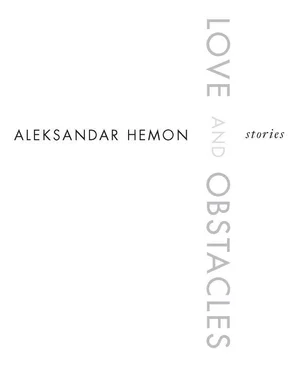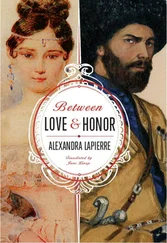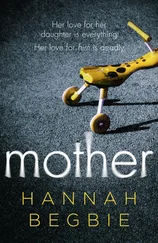Aleksandar Hemon - Love and Obstacles
Здесь есть возможность читать онлайн «Aleksandar Hemon - Love and Obstacles» весь текст электронной книги совершенно бесплатно (целиком полную версию без сокращений). В некоторых случаях можно слушать аудио, скачать через торрент в формате fb2 и присутствует краткое содержание. Издательство: Penguin USA, Inc., Жанр: Старинная литература, на английском языке. Описание произведения, (предисловие) а так же отзывы посетителей доступны на портале библиотеки ЛибКат.
- Название:Love and Obstacles
- Автор:
- Издательство:Penguin USA, Inc.
- Жанр:
- Год:неизвестен
- ISBN:нет данных
- Рейтинг книги:5 / 5. Голосов: 1
-
Избранное:Добавить в избранное
- Отзывы:
-
Ваша оценка:
- 100
- 1
- 2
- 3
- 4
- 5
Love and Obstacles: краткое содержание, описание и аннотация
Предлагаем к чтению аннотацию, описание, краткое содержание или предисловие (зависит от того, что написал сам автор книги «Love and Obstacles»). Если вы не нашли необходимую информацию о книге — напишите в комментариях, мы постараемся отыскать её.
Love and Obstacles — читать онлайн бесплатно полную книгу (весь текст) целиком
Ниже представлен текст книги, разбитый по страницам. Система сохранения места последней прочитанной страницы, позволяет с удобством читать онлайн бесплатно книгу «Love and Obstacles», без необходимости каждый раз заново искать на чём Вы остановились. Поставьте закладку, и сможете в любой момент перейти на страницу, на которой закончили чтение.
Интервал:
Закладка:
From thereon in, for a while, there were the three of us. We went places: Spinelli driving his Land Rover reeking of dogs and rope, drumming on the wheel, slapping the dashboard instead of a cymbal, calling Natalie his Monkeypie; Natalie smoking in the passenger seat, looking out; me in the back, the breeze from the open window blowing the cigarette smoke intoxicatingly mixed with her smell directly in my face. The three of us: Spinelli, Monkeypie, Blunderpuss, like characters in an adventure novel.
On July 27—I remember because I made another attempt at writing—we went to the Cité to look for Philippe, who still hadn’t shown up for work. Presumably, this was a means for Spinelli to expiate his drumming sins, arranged between Tata and him. Spinelli and Natalie picked me up at the crack of dawn; the light was still diffused by the residues of the humid night. We drove toward the slums, against the crowd marching in antlike columns: men in torn shorts and shreds for shirts; women wrapped in cloth, carrying baskets on their heads, swollen-bellied children trotting by their sides; emaciated, long-tongued dogs following them at a hopeful distance. I had never seen anything so unreal in my life. We turned onto a dirt road, which turned into a car-wide path of mounds and gullies. The Land Rover stirred up a galaxy of dust, even when moving at a low speed. Shacks misassembled from rusty tin and cardboard were lined up above a ditch, just about to tumble in. I understood what Conrad meant by inhabited devastation. A woman with a child tied to her back dipped clothes into tea-colored water and slapped the wet tangle with a tennis racket.
Soon a shouting mob of kids was running after the car. “Check this out,” Spinelli said, and hit the brakes. The kids slammed into the Land Rover; one of them fell on his ass, others backed off and watched, scared, the Land Rover moving on forward. “Oh, stop it!” Natalie said. As soon as the car caught some speed, the kids were running after it again; they didn’t see a Land Rover in the Cité too often. Spinelli hit the brakes again, slapping his thigh with glee. I could see the face of the tallest boy smash against the back window, blood blurting out of his nose. Spinelli’s laughter was deepchested, like the bark of a big dog, ending with a sucking noise. It was infectious; I was roaring with laughter myself.
We stopped in front of a church, where a choir was singing: thorough, somber voices. Spinelli went in to leave a message for Philippe; Natalie and I stayed behind. He pushed his way through the kids, who parted, murmuring: “Mundele, mundele.” I wanted to say something that would delight Natalie, but all I could think of was to ask: “What are they saying?” “It means ‘skinless,’ ” she said. The tall boy was still bleeding, but could not take his eyes off Natalie. She took a picture of him; he wiped his bloody nose and turned away from the camera; a few other kids covered their faces with their hands. I didn’t know what to say, so I closed my eyes and pretended to nap.
“You gonna have to get yourself a new cook, Blunderpuss,” Spinelli said, climbing into his seat. “That’s Philippe’s funeral they’re singing for. The man’s happily dead.”
From the Cité we went to the market—Le Grand Marché—and wandered around; it was too early to go home. All the smells and colors, all the stuff of the world: snakes, bugs, rats and rodents, clucking chickens and plucked fowl, flat fish, long fish, square fish, and skinned mongrel creatures that seemed to have been slapped together in hell. Spinelli bartered in Lingala and English, plus hands and grimaces. He pretended to be interested in a dried monkey, whose hands grasped nothingness with unappetizing despair; he picked through yams but didn’t buy any. Natalie took pictures of terrified goats waiting to be slaughtered under the counter, of eels still fidgeting in a beaten pot, of worms squirming in a shoe box, which the woman who was selling them protected from the lens with a newspaper.
These people had no abstract concept of evil, Spinelli said, like we did; for them it was black magic coming from a particular person, so if you wanted to get rid of the evil spell you eliminated the guy. The same thing with the good: it was not something you could aspire to, like we did; you couldn’t get it, either you had it or you didn’t. He delivered his anthropological lecture while bargaining over an enormous, baroque cluster of bananas; he bought it for nothing and loaded it on his shoulder. You could not die of hunger here, he said, ’cause bananas and papayas grew like weeds everywhere. That was why these people never learned to work; they never had to harvest and store food to survive. And their blood was thicker too, which explained why they slept all the time.
Nobody slept in the Grand Market; everybody was yelling, heckling, bargaining. A mass of people followed us, offering things we could not possibly need: toilet brushes, knitting needles, figurines carved out of what Spinelli claimed was human bone. I ventured to buy a bracelet made of elephant hair and ivory, but only after he had inspected it. It was supposed to be a gift for Azra.
Later that same day, we went to the InterContinental. We trod the leopard-patterned carpet to the lounge, where a ponytailed pianist played “As Time Goes By.” We got colorful cocktails with tiny umbrellas stuck in unknown fruit. There were men in Zairian attire: wide collars, no ties, bare chests with a lot of gold, hands bejeweled. Spinelli called them the Big Vegetables; they liked to stick out of Mobutu’s ass. And those expensive white whores with them came from Brussels or Paris; they spread their legs for two or three months, then took a little pouch of diamonds back home to live it up for the rest of the year. And that man over there was Dr. Slonsky, a Russian who had come twenty years earlier, when you had to import ass-wipes from Belgium. He used to be Mobutu’s personal physician, but currently he did only the Big Vegetables—Mobutu had a Harvard graduate taking care of him. Slonsky was constantly depressed, because he liked to shoot up.
Natalie sucked at her straw, not listening, as if she had heard it all already. “Are you okay, Monkeypie?” Spinelli asked her. I wanted to show, in solidarity with her, that I could not be fooled by Spinelli’s gossip, but in truth I was mesmerized.
Then there was Towser the Brit. His was a garden of earthly delights, with flowers you could not begin to name; his wife worked at the British embassy. And that scruffy youngster sitting next to him was their Italian boyfriend. They were talking to Millie and Morton Fester. They were New Yorkers, but liked to spend time in Africa; they dealt in tribal art, that kind of crap, most of it pilfered away from the natives by the Big Vegetables. Millie wrote fancy porn novels; Morton used to be a photographer for National Geographic, trawled the dark continent for images of bizarre animals. He had a full head of hoary hair, and huge glasses that extended beyond his sunken cheeks; she had the yellow teeth of a veteran smoker. Spinelli actually waved at them, and Morton waved back. Somehow, the waving confirmed Spinelli’s stories; he conjured them into existence with the motion of his hand.
Then we were joined by Fareed, a Lebanese whose head was smooth like a billiard ball and whom Spinelli affectionately called Dicknose. He bought us a round of drinks, and before I could even agree to it, we went up to Dicknose’s room, where he opened a black briefcase for us. There was a velvet cloth in it; he unwrapped it and proudly exhibited a tiny heap of uncut diamonds, sparkling like teeth in a toothpaste commercial. The diamonds had just arrived from Kasai, Dicknose said, fresh from the bowels of the earth. Natalie touched the heap with the tips of her fingers, worried that those nuggets of light might vanish; her nails were bitten to a bloody pulp. “All you need to make your girl-friend here happy, Blunderpuss, is twenty-five thousand dollars,” Spinelli said. Natalie looked at me and smiled, confirming the price.
Читать дальшеИнтервал:
Закладка:
Похожие книги на «Love and Obstacles»
Представляем Вашему вниманию похожие книги на «Love and Obstacles» списком для выбора. Мы отобрали схожую по названию и смыслу литературу в надежде предоставить читателям больше вариантов отыскать новые, интересные, ещё непрочитанные произведения.
Обсуждение, отзывы о книге «Love and Obstacles» и просто собственные мнения читателей. Оставьте ваши комментарии, напишите, что Вы думаете о произведении, его смысле или главных героях. Укажите что конкретно понравилось, а что нет, и почему Вы так считаете.












